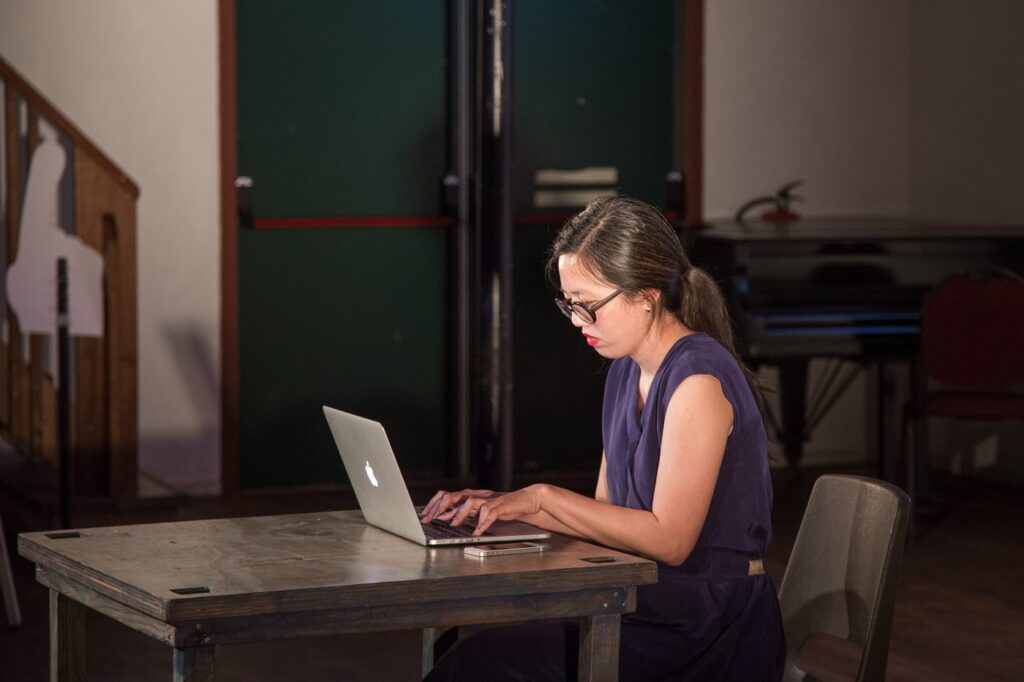If there were to exist a single material
body, it would make no sense to say it
was at rest, nor that it was moving.
– “The Changing Views of
Space, Time and Spacetime”
Dutch men explain things to me. Nederlandse mannen zeggen me dat ik de wereld ervaar in drie dimensies, en toch, zeggen Nederlandse mannen me, valt die tweedimensionaal te beschrijven. Dutch men tell me I see the world in three dimensions, but Dutch men tell me we can only solve this in two. Nederlandse mannen dromen van oppervlak en informatie. Dutch men dream of surface and information. Dutch men draw landscapes comprised of straight lines and solid colors, and they stand back trembling, in awe of the flatness. Nederlandse mannen tekenen landschappen met niets dan rechte lijnen en effen kleuren, om dan bevend een stap terug te doen, uit ontzag voor de platheid. Dutch men see the sublime in the shiny curve of a fork, in a piece of wood adrift, restless, next to a fluyt on the North Sea. Nederlandse mannen zien het sublieme in de glanzende kromming van een vork, in een drijvend stuk hout, rusteloos, naast een fluyt op de Noordzee. Dutch men explain what a fluyt is.
Dutch men are not often flying, but they love their ships all the same. Nederlandse mannen willen dat hun buren normaal zijn. Dutch men only want their neighbors to be normal. Dutch men see the vertical and call it horizontal. Nederlandse mannen zien verticaal en noemen het horizontaal. Dutch men polish their beaded bureacracies until they see lace collars of democracy. Nederlandse mannen polijsten hun beparelde bureaucratieën net zo lang tot ze de kanten kragen van de democratie zien. Dutch men smile at their reflections in round, curved mirrors. Nederlandse mannen glimlachen naar hun spiegelbeelden in bolronde spiegels. Dutch men wear bright shirts and shoes with large buckles. Nederlandse mannen dragen felle shirts en bloemetjesschoenen. Dutch men wear shorts only in their boats and their gardens. Nederlandse mannen dragen alleen korte broeken op hun boten en in hun tuinen.
De mansplaining van Nederlanders is uitstekend, maar hun manspreading nog beter. Dutch mansplaining is exemplary, but their manspreading is better. The Dutch manspread their nation straight into the Atlantic Ocean. Nederlanders manspreaden hun natie ver de Atlantische Oceaan in. Nederlandse mannen begrijpen dat diversiteit het probleem van vandaag is. Dutch men understand that today’s problem is diversity. Nederlandse mannen laten één vingernagel groeien en spelen dan gitaar in de weekenden. Dutch men grow one long fingernail and play guitar on the weekends.
Dutch men remember the golden years of Burroughs, Achterberg and Mailer. Nederlandse mannen halen herinneringen op aan appeltaarten en verjaardagen in kringen. Dutch men tell me about Lucretius, not to be mistaken for Novalis. Nederlandse mannen vertellen me over Novalis, niet te verwarren met Lucretius. Dutch men will meet me in a love hotel, if I promise to rip their stockings. Nederlandse mannen zouden me willen ontmoeten in een sekshotel, mits ik beloof hun pantykousen stuk te scheuren. Dutch men don’t see gender nor skin color. Nederlandse mannen slaan geen acht op gender of huidskleur. Nederlandse mannen kijken naar het nieuws en zeggen: “Ze was iemands dochter!” Dutch men see the news and say, “But she was some Dutch man’s daughter.” Nederlandse mannen zijn niet bang voor tranen, en zullen ze openbaar maken. Dutch men aren’t afraid of tears, and they’ll show them in public. Nederlandse mannen doen hun best.
Dutch men walk into me and never say they’re sorry. Nederlandse mannen lopen tegen me op en bieden nooit excuses aan. Dutch men do everything with reason and intention. Nederlandse mannen willen graag poëzie schrijven over het lichaam. Dutch men want to write poetry about the body. Dutch men fill empty spaces with “poeh poeh” and “asjemenou.” Dutch men explain that I must be nobody. Nederlandse mannen leggen me uit dat ik niemand ben. But it was Lucretius I tell them (they tell me) who was the first to articulate the void – space – as not being nothing. Maar het was Lucretius die voorstelde de leegte – ruimte – niet als niets te zien. Dutch men, asjemenou! Poeh poeh. I’m Nobody! Who are you?
With thanks to Kim Schoof








